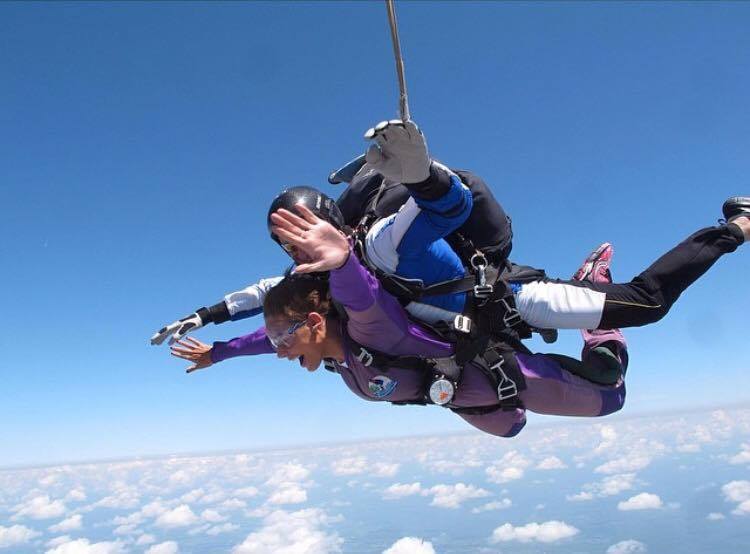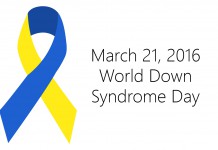
History
Since the 1970s, protests have been held in response to sexual violence against women. These protests originated in England, led by women who were attacked as they walked the streets at night. These protests later would be known as “Take Back the Night” marches. Word about these protests spread, and by 1978, San Francisco and New York held the first two sexual violence protests in the United States. Over time, the topic of sexual assault awareness grew to also include the issue of sexual violence against men.
In the late 1980s, The National Coalition Against Sexual Assault (NCASA) took a poll of state sexual assault coalitions so that a Sexual Assault Awareness Week could be selected. They decided on a week in April. But in the 1990s, a number of advocates began holding events throughout the entire month of April instead of just the one week that had been selected. Advocates then called for a national month.
On April 1, 2001, the U.S. first recognized April as Sexual Assault Awareness Month (SAAM). Since then, a number of events have been held during April to help spread awareness of sexual assault and its impact on the lives of survivors.
 Operation Freefall
Operation Freefall
One event known as Operation Freefall has a unique way of raising money for this global cause. On the last Saturday in April, people across the country will skydive – most of them for the first time – to participate in what Operation Freefall refers to as The Two-Mile-High Stand Against Sexual Assault®.
Kellie Greene, founder of the organization Speaking Out About Rape, Inc. (SOAR) and a survivor of sexual assault herself, is also the creator of Operation Freefall. On January 18, 1999, Greene skydived for the first time on what was also the fifth anniversary of her rape. That event was the beginning of what would become one of the most distinctive and daring events organized to raise awareness for sexual assault.
“The great thing about Operation Freefall is that it is an event that everyone, male and female, survivor and supporters, can participate in because it is an empowering event, and people don’t have to identify as a survivor if they don’t want to,” said Greene. “It’s a day of celebration, of embracing life. I hope that everyone who participates, whether it is skydiving, cheering from the ground, donating to a jumper, whatever – I hope that they realize they are capable of their own personal greatness and that there are many people who care about them.”
Participants in the event must raise a minimum of $950 by April 1 to skydive. The money raised is used to help increase local outreach programs for survivors of sexual violence, provide information concerning recovery and risk-reduction and educate people on the personal impact of sexual assault on survivors.
Operation Freefall has been held every year since 2000 except for 2013 and this year (2016). “We are currently looking at redesigning it for 2017, so stay tuned,” said Greene. In total, the event has raised more than $1 million for the cause.
Kellie Greene’s Story
Before 1999, Greene would spend January 18 consumed by the dark memories of her attack. “I was tired of that day being something I dreaded each year, and I didn’t want to live the rest of my life that way,” she said. “So I started thinking about things I could do to change the meaning of the day for myself.”
Therapists made suggestions to Greene, such as writing all of her bad memories down and burying them in her back yard or writing them down and burning them, but none of those ideas seemed to sit well with her. “I needed something that would change my thinking, something that would make me want to look forward to January 18 every year,” she said.
Greene finally decided on skydiving for three reasons. One was the fact that it made people scream. “When you jump out of an airplane at 13,500 feet, you scream. Especially as you catch a glimpse in your peripheral vision of the plane you were just in flying away,” she said. “These screams mirrored the primal screams I had screamed for survival the night I was raped, except this time it was because of something I chose, not something that was being done to me.”
You Might Also Enjoy: Public Health Degree Leads to Many Opportunities
Secondly, this forced Greene to be close to a man, as well as put her trust in one. “After the rape, I started to develop anxiety around men. I knew all men were not bad, but it was difficult to be close to men, especially strangers,” she said. “When you do a tandem skydive, the tandem instructor is literally strapped to your back.” Going through this experience helped Greene trust people within her personal space again.
Finally, Greene said she chose skydiving to help improve her body’s response to an adrenaline rush. “After the rape, I had a terribly low threshold for the startle response,” she said. “Every time I was startled, my knees would ache from the sensation of the adrenaline rushing through my body.”
Greene was convinced that her rape rewired some things in her brain, causing a negative reaction to situations fueled by adrenaline.
“I thought that if I could recreate the same adrenaline rush as the night of the rape, but have it be associated with something positive – and that I was in control of – I might be able to rewire my brain back to how it was prior to the rape,” she said.
Greene’s assumption was correct. When she landed on the ground after soaring through the air at 120 mph, she said she didn’t feel any pain in her knees and over time, her startle response went back to normal.
That decision to skydive in 1999 changed Greene’s life forever. “I reclaimed January 18 for myself,” she said. “I gave it a new memory, a memory I chose, a memory I created and had complete control over.”
The same year of her first skydive, Greene founded the organization known as SOAR Inc. “The driving force behind the creation of SOAR is exactly what the acronym stands for: Speaking Out About Rape,” she said. “I wanted to raise awareness of the impact that sexual violence has on survivors, their loved ones, their co-workers and neighbors, and the communities in which they live.”
Greene also wanted people to understand the totality of the healing process. “It’s not like how it is presented on TV or in the movies,” she said. “It takes years to fully recover because of all the various parts of your life that are touched by this type of violence.”
According to Greene, her mom was instrumental during her healing process. “I honestly don’t think I would’ve been able to recover the way I did without her,” said Greene. “She raised me to know I was strong enough to heal, and she reminded me I was strong and would heal.” Greene said she feels blessed to have had her mom by her side during that difficult time in her life. One of her favorite memories from her first skydive was having her mom there when she landed.
Greene will tell you that her journey along the path to healing was a long and difficult one, but now when January 18 comes around she no longer feels the need to jump. In total, Greene has made the jump 25 times.
“A few years back it just became a regular day, like any other day for me,” said Greene.
Through the Eyes of Survivors
Greene has watched many survivors like her participate in the skydiving event over the years. “On the second anniversary of my first skydive, there were about 25 people who showed up at the drop zone to skydive with me,” she said.
Greene knew some of them but not all. However, one particular survivor seemed to stand out. “She had this incredible sadness in her eyes,” said Greene. “It was an emptiness that I recognized because I had seen it reflected in the mirror from my own eyes for many years.”
Greene went out to hug her after she landed from her skydive and noticed something different. Later that day, the girl shared with Greene that she had stopped going to therapy, but when she got home she would start going again. “Skydiving gave her the courage to cross to the other side, of going beyond survivor, to reclaim her life for herself with no labels,” said Greene.
Another survivor, Jade Tantillo, also had a transformational experience after participating in the skydiving event. Tantillo heard about Operation Freefall through a friend and was instantly intrigued.
“The initial grab was the fact that the participants were able to go skydiving once the fundraising was over – and then she told me what the cause was actually for,” Tantillo said. “The entire concept of Operation Freefall was something right up my alley and something I was really willing to fundraise for.”
Tantillo participated in the event in April 2014 and exceeded her goal of $950 by raising $1,145. “My family, friends, and supporters were extremely eager and charitable,” she said. “I even heard from people that I hadn’t heard from in a few years, just to see if they could donate or support in any way.”
This was Tantillo’s first time skydiving. “I was definitely more excited than I was scared or nervous to skydive,” she said. Tantillo described her overall experience as “purely incredible.”
“As a survivor, I really did feel encouraged and liberated,” she said. “The whole concept of being so close to a complete stranger to do something that new and intense is a brilliant metaphor for overcoming such a negative and intense experience. I am incredibly grateful for the Operation Freefall event.”
Help is Available
If you are a victim of sexual violence or want to learn more about how you can help others, please call or visit one of the resources listed below.
24/7 National Sexual Assault Hotline – 1.800.656.HOPE (4673)
National Sexual Assault Online Hotline – chat one-on-one with a trained support specialist, 24/7.
Find a local counseling center near you – Comprised of independent sexual assault service providers, these centers offer assistance for individuals, groups and communities. Find a center near you here.









